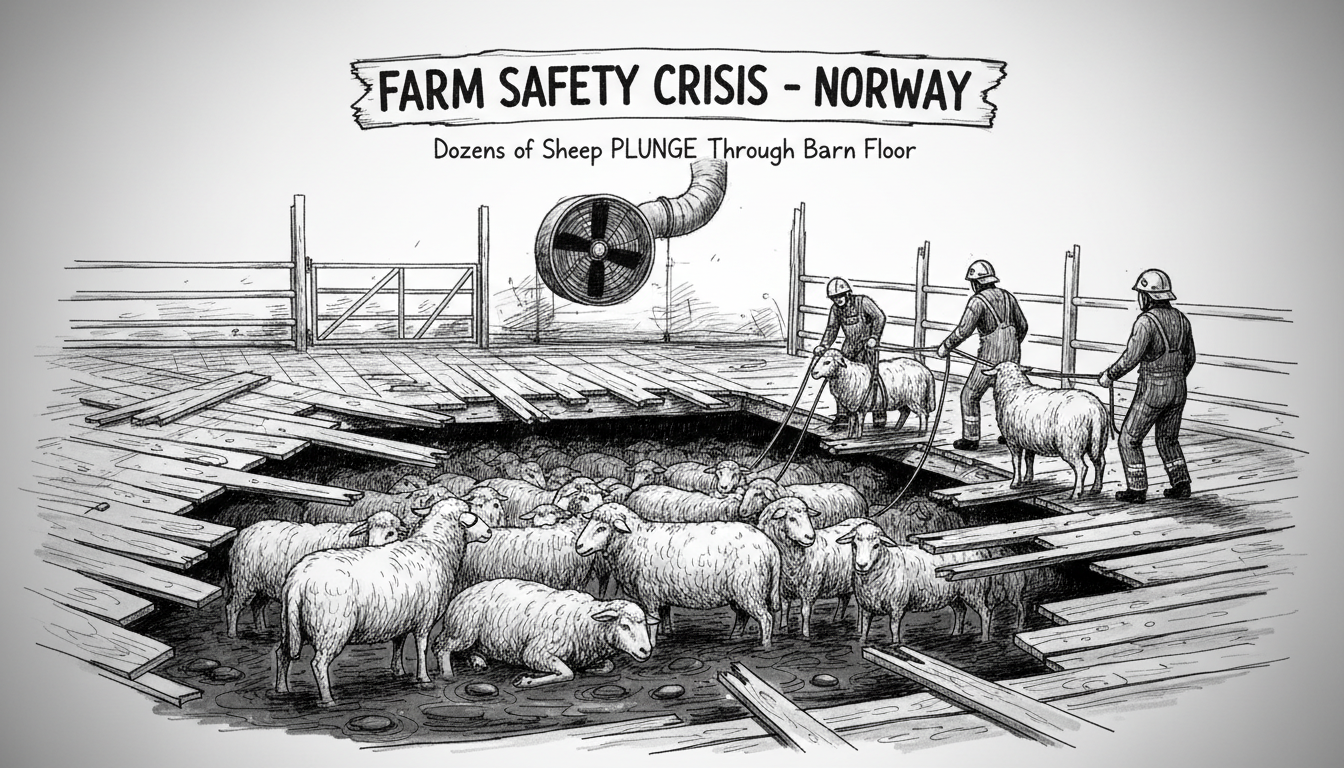Emergency services responded to a dramatic incident in Steinkjer where up to 100 sheep fell through a barn floor into a manure cellar below. The accident occurred at a farm in Stod, a village in central Norway's Trøndelag county.
Police received the emergency call at 10:55 AM local time. Authorities immediately dispatched four patrol units to the scene. The situation required additional personnel to evacuate the animals from the dangerous conditions.
Operation leader Kamilla Engen confirmed that all surviving sheep had been rescued from the manure cellar by noon. At least one sheep died in the fall. A veterinarian was en route to assess the remaining animals' condition.
The Norwegian Farmers' Union provided extra manpower to assist with the rescue operation. This organization represents agricultural interests across Norway and frequently assists in rural emergencies.
Manure cellars, known locally as 'fraukjeller,' are common features in Norwegian agricultural buildings. These underground storage areas collect animal waste for later use as fertilizer. The incident raises questions about barn safety standards and animal welfare protocols.
Norwegian farming operations follow strict regulations under the country's Animal Welfare Act. This legislation requires farmers to maintain safe environments for livestock. Regular inspections ensure compliance with structural and care standards.
This type of agricultural accident, while uncommon, highlights the physical risks present in traditional farming practices. Norway's rugged terrain and harsh climate create unique challenges for farmers operating in remote areas like Trøndelag.
The regional economy in central Norway relies heavily on agriculture and fishing. Sheep farming represents an important sector, with Norwegian lamb considered a premium product in domestic markets. Any incident affecting livestock has economic implications for individual farmers and local communities.
Animal rescue operations in rural Norway typically involve coordinated efforts between police, fire departments, and agricultural organizations. The country's decentralized population means emergency services must cover vast areas with limited resources.
Farm safety incidents occasionally make headlines in Nordic countries where agriculture remains culturally significant despite urbanization. Norway maintains strong traditions of small-scale farming alongside modern agricultural enterprises.
Authorities will likely investigate the structural integrity of the barn following this incident. Norwegian building standards for agricultural structures require regular maintenance and safety checks. The farm owner may face questions about whether proper inspections had been conducted.
This event serves as a reminder of the physical dangers animals face in agricultural settings. It also demonstrates the rapid response capability of Norway's emergency services in rural regions where farming accidents can have serious economic consequences for individual operators.

